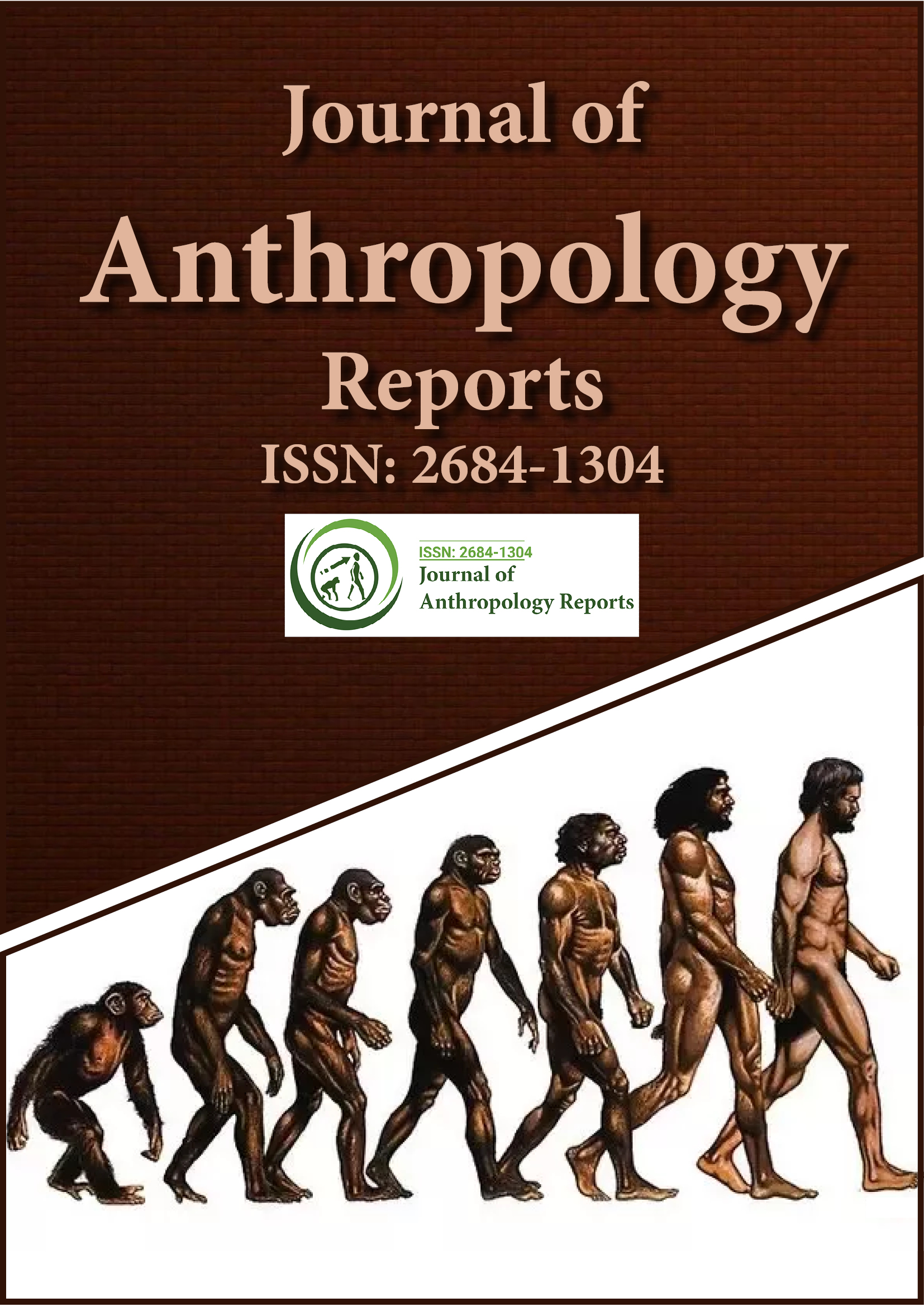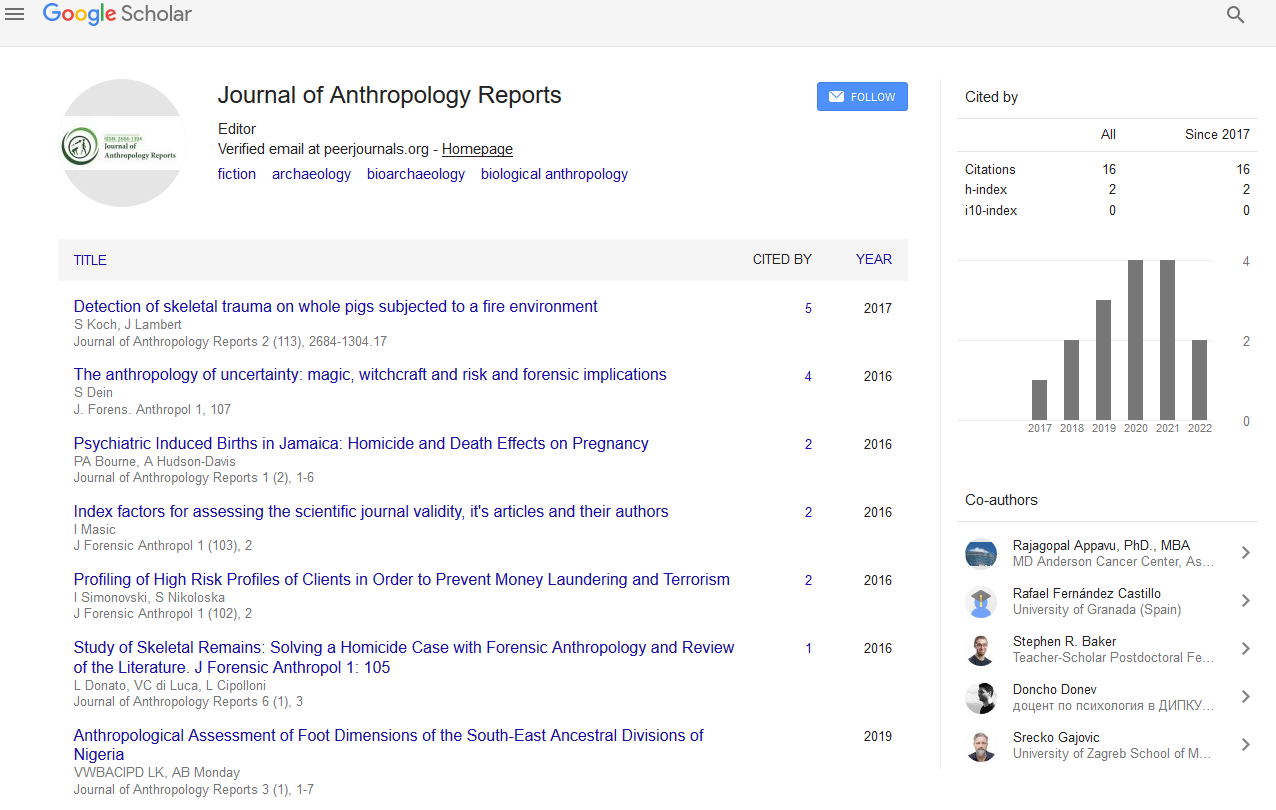Indexed In
- RefSeek
- Hamdard University
- EBSCO A-Z
Useful Links
Share This Page
Journal Flyer

Open Access Journals
- Agri and Aquaculture
- Biochemistry
- Bioinformatics & Systems Biology
- Business & Management
- Chemistry
- Clinical Sciences
- Engineering
- Food & Nutrition
- General Science
- Genetics & Molecular Biology
- Immunology & Microbiology
- Medical Sciences
- Neuroscience & Psychology
- Nursing & Health Care
- Pharmaceutical Sciences
Commentary - (2023) Volume 6, Issue 4
Cultural Anthropology is Signed by the Concept of Culture Itself
Denian Wong*Received: 29-Nov-2023, Manuscript No. JFA-24-24561; Editor assigned: 01-Dec-2023, Pre QC No. JFA-24-24561 (PQ); Reviewed: 15-Dec-2023, QC No. JFA-24-24561 (QC); Revised: 22-Dec-2023, Manuscript No. JFA-24-24561 (R); Published: 29-Dec-2023, DOI: 10.35248/2684-1304.23.6.179
Description
Cultural anthropology is the sum of the beliefs, values, symbols, and activities learned and shared among the members of a group that bind them together as an identifiable group. Cultural anthropology, also known as social anthropology (a term more commonly used in Europe), encompasses all aspects of human beings. Religion, language, learning, family traditions, and life structures fall under the broad field of cultural anthropology.
For 100 years, many definitions of "culture" have been offered and debated in the scientific literature, but a simple and complete definition of culture is “the knowledge that people use to live their lives and how they do this”.
The National park service uses a similarly simple definition of culture in its cultural resource management guidelines: “behaviors (including economic, religious, and social), beliefs (values, ideology); and systems of social arrangements” characterized by research methods used in the study of human culture. The first of the various qualitative and quantitative methods is “participant observation.” It is the practice of living and participating within a community and gaining a deep understanding of cultural systems through active direct experience and participation in everyday life.
However, participant observation is more than just talking to people; it involves systematic techniques, including individual interviews with cultural experts, focus groups, questionnaires and surveys, and a variety of methods for exploring cultural knowledge and areas. Some scientific fields use large data sets to find social patterns or to reproduce laboratory results in order to arrive at facts that appear to be universal.
Cultural anthropologists, on the other hand, tend to focus on specific social contexts
They study how people think and behave in these environments. Cultural anthropologists do not seek to finally solve humanity's greatest unexplainable through field research. Rather, we are interested in understanding the complex ways in which people give meaning to their lives. Throughout the 19th and most of the 20th centuries, this research primarily involved anthropologists (usually from Europe or North America) traveling to a single site (usually a village or town in Latin America, Africa, Asia, or Oceania) conducted a survey.
Local knowledge and practice
In recent years, these ideas about who can practice anthropology and where the "field" resides have expanded and diversified. Today, anthropologist’s scope of work may include tracking global commodity chains, studying how mobile phones are changing social relationships, or studying the social media platforms used by people around the world. Cultural anthropologists study how different modern societies face complex issues, such as mental health in Indonesia, police in Kenya, and waste management in Hong Kong.
Some of the issues facing local populations reflect global issues
Anthropologists therefore also investigate the politics surrounding global climate change, refugee movements, economic surpluses and the social consequences of severity policies, among others. Cultural anthropology also extends to areas where human experience intersects with technology and non-human animals. Researchers are studying a wide range of topics, from AI-controlled robot soldiers to transgenic organ transplants and the relationship between humans and macaque monkeys and mine-detecting military rats. The study of cultural anthropology deals with people's pressing questions and life experiences. For people on Earth today, this includes studying processes such as global warming. For example, how people around the world are cleaning up carbon emissions through sustainable agriculture, or how the rise in hurricanes is highlighting social inequalities. Anthropologists are also becoming more interested in technology: How do mobile phones, social media, and artificial intelligence affect people's lives? Many anthropologists today are also interested in how historically unjust power systems have influenced the way people live today. This extends to the treatment of prisoners.
Citation: Wong D (2023) Cultural Anthropology is Signed by the Concept of Culture Itself. J Anthropol Rep. 6:179.
Copyright: © 2023 Wong D. This is an open-access article distributed under the terms of the Creative Commons Attribution License, which permits unrestricted use, distribution, and reproduction in any medium, provided the original author and source are credited.

